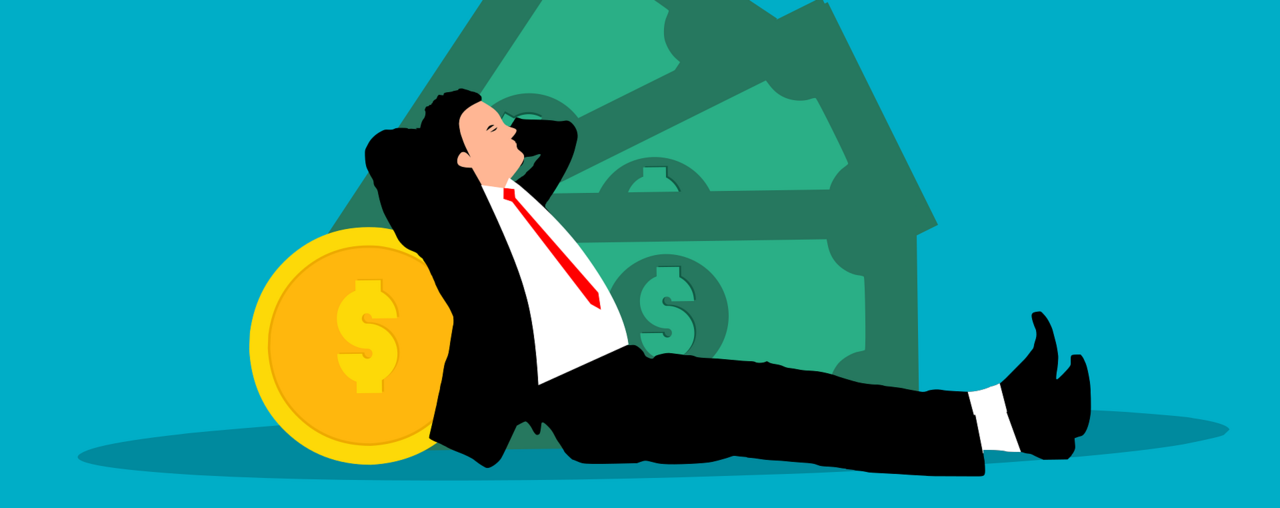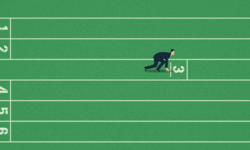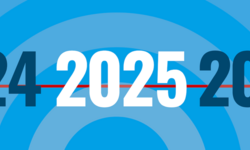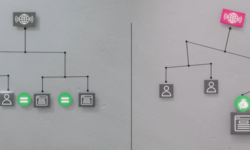
Data Toll: Deutsche Telekom vs Meta
How Do Data Move on the Internet?
In order to understand the debate in its entirety, it is necessary to explain how data move on the internet. Customers pay an internet service provider (ISP) such as Deutsche Telekom so that they can access any content on the internet. There are then two ways in which data from content providers (e.g. cloud services, video streaming services, etc.) reach consumers. Either global “transit providers” can carry the data via their own networks to all other networks, or the content providers can connect directly to ISPs via “peering”. Peering is the preferred option because it offers users better loading times and connections, as the intermediate step of the often more expensive “transit provider” is eliminated.
In the data toll debate, ISPs such as Deutsche Telekom are complaining that content providers are generating an expensive “relentless” growth in data traffic without “contributing their share”. ISPs therefore want content providers to pay them for the data generated in their networks via expensive transit connections.
Contradictory Arguments of the Internet Providers
In reality, however, the ISPs’ arguments on data tolls can be compared to a house without a foundation that is being built with the sole aim of maximising profits.
- Although the ISPs are right that the amount of data traffic is growing consistently, the idea that this results in huge costs is not even supported by their own statistics. Vodafone, a major ISP that advertises “network charges” itself, writes that their traffic has “grown rapidly”, “while at the same time the cost per GB is falling even faster”.
- The ISPs’ accusation that content providers do not contribute to the network is consistently false. Not only do content providers invest hundreds of billions of euros annually in content that drives demand for internet access (i.e. ISPs’ products), but they also invest billions annually in internal infrastructure that delivers their data virtually straight to the ISPs’ doorstep. This saves the ISPs billions in costs every year. In addition, many content providers are also investing in more efficient encoding, which means that for example high-resolution videos require less and less bandwidth.
- According to Deutsche Telekom, it is common practice to demand “interconnection fees”, but here too the statistics show the opposite. In 2011, only 0.27% of all direct connections demanded “interconnection fees”, and in 2021 only 0.0004%. This is far from common.
- ISP customers already pay for their internet connection and data traffic. With a data toll, content providers would be asked to pay for the same connection. It would be like paying for food in a restaurant, but the chef would have to pay the waiter extra to actually bring the food to the customers.
Net neutrality in danger
ISPs are therefore demanding money for services that have already been paid for, despite falling costs and robust contributions from content providers in a market that is functioning as intended according to the regulatory authorities.
Even if the arguments in favour of a data toll, network charges, or “fair share” were not based on completely false assumptions, they still pose a considerable risk both for individual customers and for net neutrality.
Net neutrality means that all data on the internet is treated equally - regardless of who provides it. If a data toll was introduced, only providers with sufficient financial resources would be able to load their content quickly. Smaller providers or those who do not pay interconnection fees would be artificially slowed down. If a data toll was fully implemented, customers would have to expect higher costs, poorer connection quality, and a diminishing choice of content.
Battle of the Giants
The issue of data tolls is now gaining momentum again due to the latest case involving two companies worth billions. Deutsche Telekom sued Meta after the contract negotiations failed in 2020 and now uses the case as a cause to demand additional network charges.
Following the (not yet final) judgement that ruled in favour of Deutsche Telekom, Meta announced the end of its peering relationship with Deutsche Telekom.
Apart from the lawsuit, all the harmful business practices used by Deutsche Telekom harm the consumers who ultimately will have to pay the additional fee.
The solution would be very simple: Regulatory authorities must prevent the business practices of a few very large telecoms companies that charge horrendous fees for connecting to their networks. This is based on existing EU network neutrality laws and is the only way to protect customers from such a dispute between corporations.
Since you're here
… we have a small favour to ask. When governments constantly demand new surveillance measures, collect more and more data about us, or when corporations increase their profits at our expense, we start campaigns, write analyses or demand our rights in the courts. For all of this we need your support. Help us form a strong voice for civil society!
Donate Now!






